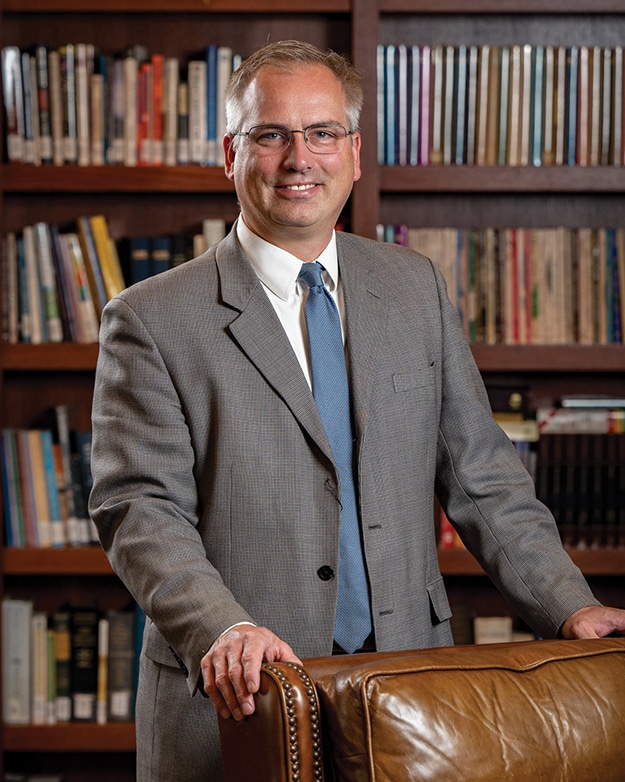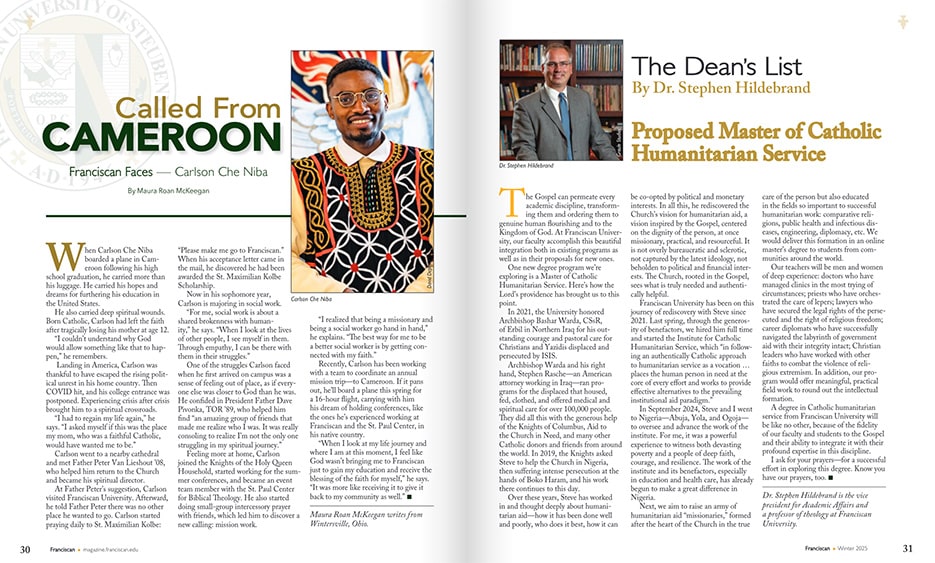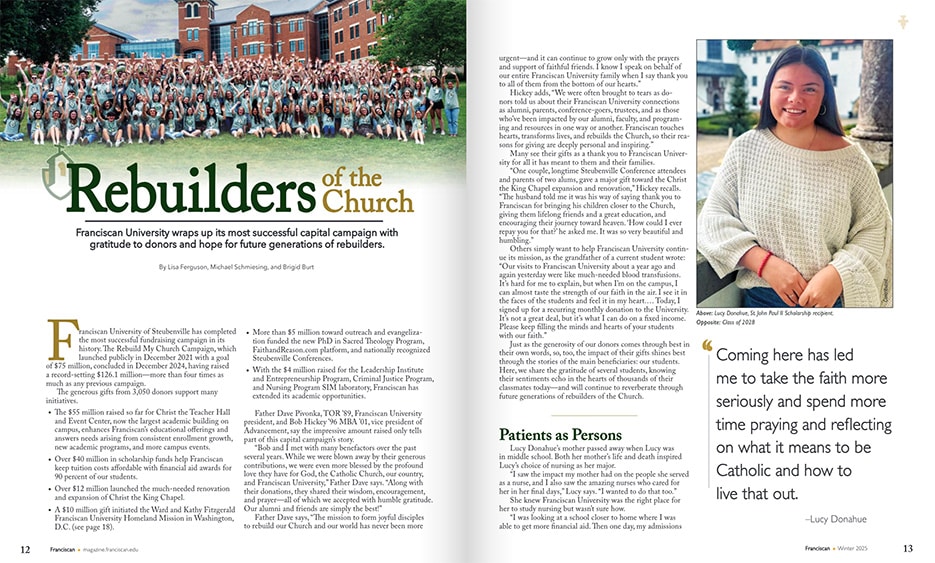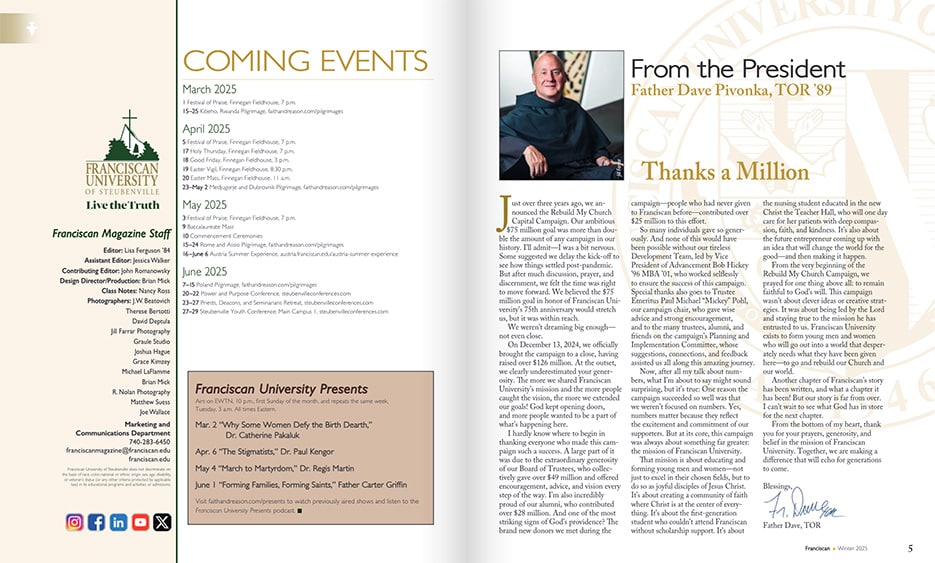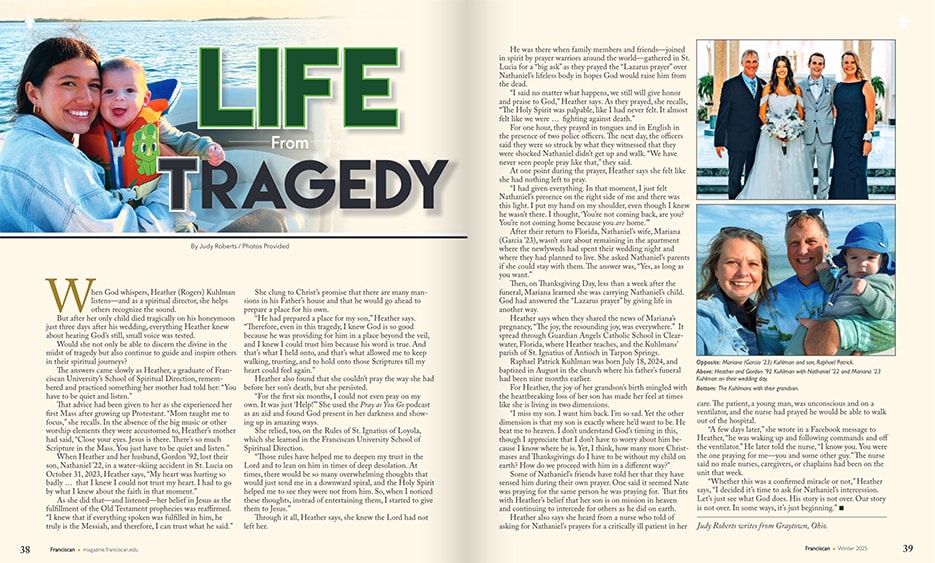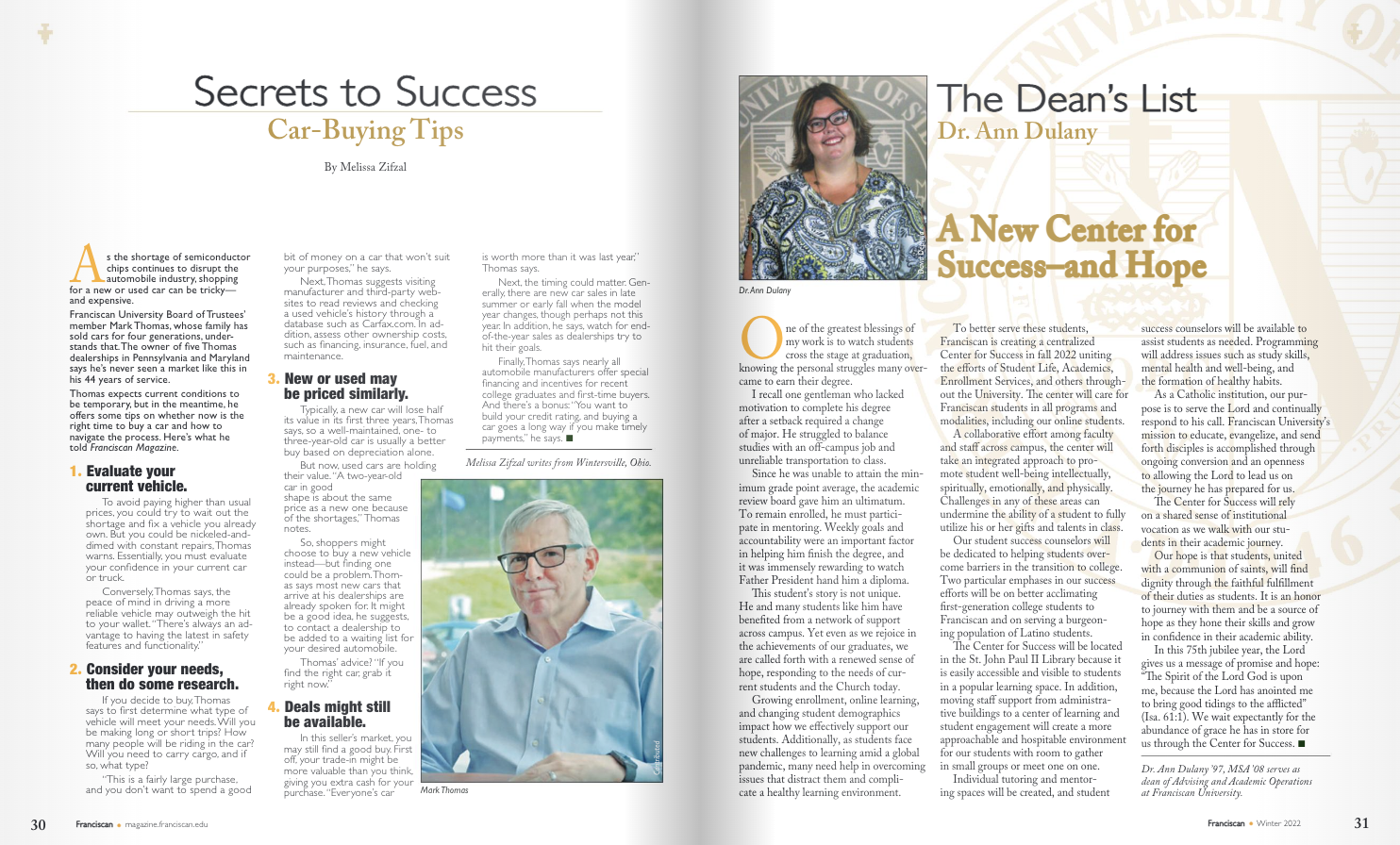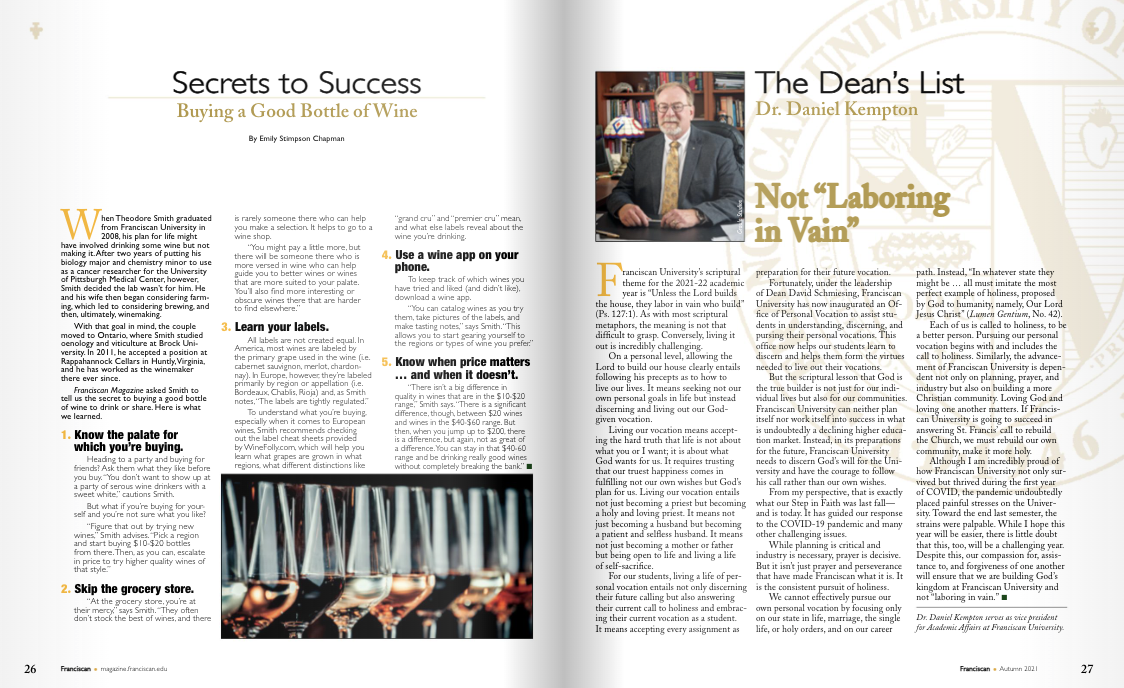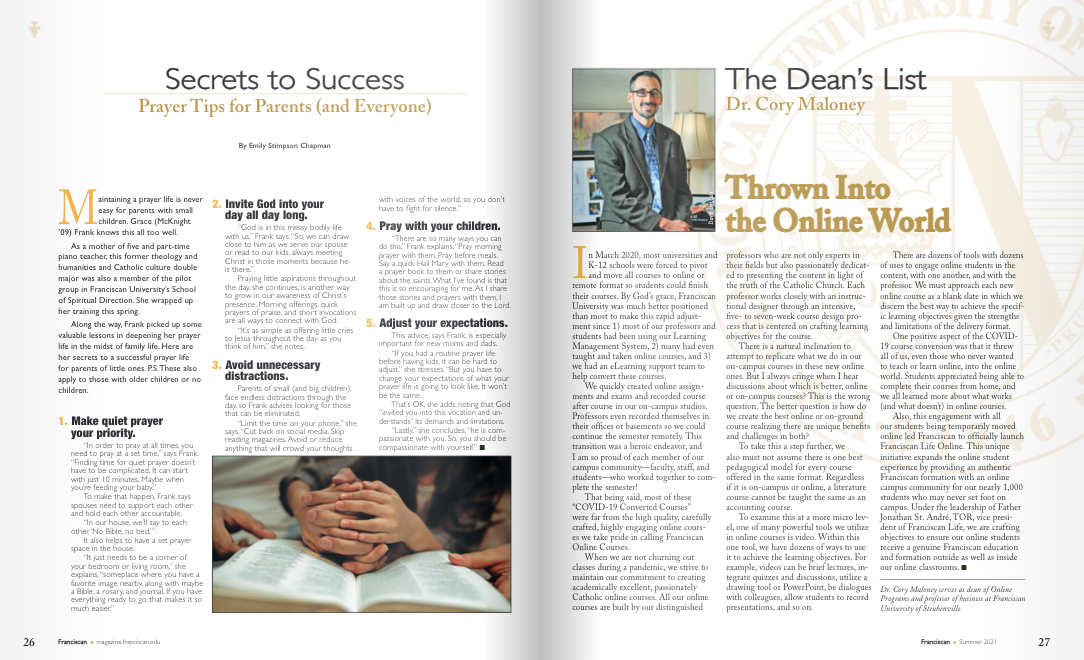The Gospel can permeate every academic discipline, transforming them and ordering them to genuine human flourishing and to the Kingdom of God. At Franciscan University, our faculty accomplish this beautiful integration both in existing programs as well as in their proposals for new ones.
One new degree program we’re exploring is a Master of Catholic Humanitarian Service. Here’s how the Lord’s providence has brought us to this point.
In 2021, the University honored Archbishop Bashar Warda, CSsR, of Erbil in Northern Iraq for his outstanding courage and pastoral care for Christians and Yazidis displaced and persecuted by ISIS.
Archbishop Warda and his right hand, Stephen Rasche—an American attorney working in Iraq—ran programs for the displaced that housed, fed, clothed, and offered medical and spiritual care for over 100,000 people. They did all this with the generous help of the Knights of Columbus, Aid to the Church in Need, and many other Catholic donors and friends from around the world. In 2019, the Knights asked Steve to help the Church in Nigeria, then suffering intense persecution at the hands of Boko Haram, and his work there continues to this day.
Over these years, Steve has worked in and thought deeply about humanitarian aid—how it has been done well and poorly, who does it best, how it can be co-opted by political and monetary interests. In all this, he rediscovered the Church’s vision for humanitarian aid, a vision inspired by the Gospel, centered on the dignity of the person, at once missionary, practical, and resourceful. It is not overly bureaucratic and sclerotic, not captured by the latest ideology, not beholden to political and financial interests. The Church, rooted in the Gospel, sees what is truly needed and authentically helpful.
Franciscan University has been on this journey of rediscovery with Steve since 2021. Last spring, through the generosity of benefactors, we hired him full time and started the Institute for Catholic Humanitarian Service, which “in following an authentically Catholic approach to humanitarian service as a vocation … places the human person in need at the core of every effort and works to provide effective alternatives to the prevailing institutional aid paradigm.”
In September 2024, Steve and I went to Nigeria—Abuja, Yola, and Ogoja— to oversee and advance the work of the institute. For me, it was a powerful experience to witness both devasting poverty and a people of deep faith, courage, and resilience. The work of the institute and its benefactors, especially in education and health care, has already begun to make a great difference in Nigeria.
Next, we aim to raise an army of humanitarian aid “missionaries,” formed after the heart of the Church in the true care of the person but also educated in the fields so important to successful humanitarian work: comparative religions, public health and infectious diseases, engineering, diplomacy, etc. We would deliver this formation in an online master’s degree to students from communities around the world.
Our teachers will be men and women of deep experience: doctors who have managed clinics in the most trying of circumstances; priests who have orchestrated the care of lepers; lawyers who have secured the legal rights of the persecuted and the right of religious freedom; career diplomats who have successfully navigated the labyrinth of government aid with their integrity intact; Christian leaders who have worked with other faiths to combat the violence of religious extremism. In addition, our program would offer meaningful, practical field work to round out the intellectual formation.
A degree in Catholic humanitarian service from Franciscan University will be like no other, because of the fidelity of our faculty and students to the Gospel and their ability to integrate it with their profound expertise in this discipline.
I ask for your prayers—for a successful effort in exploring this degree. Know you have our prayers, too.



